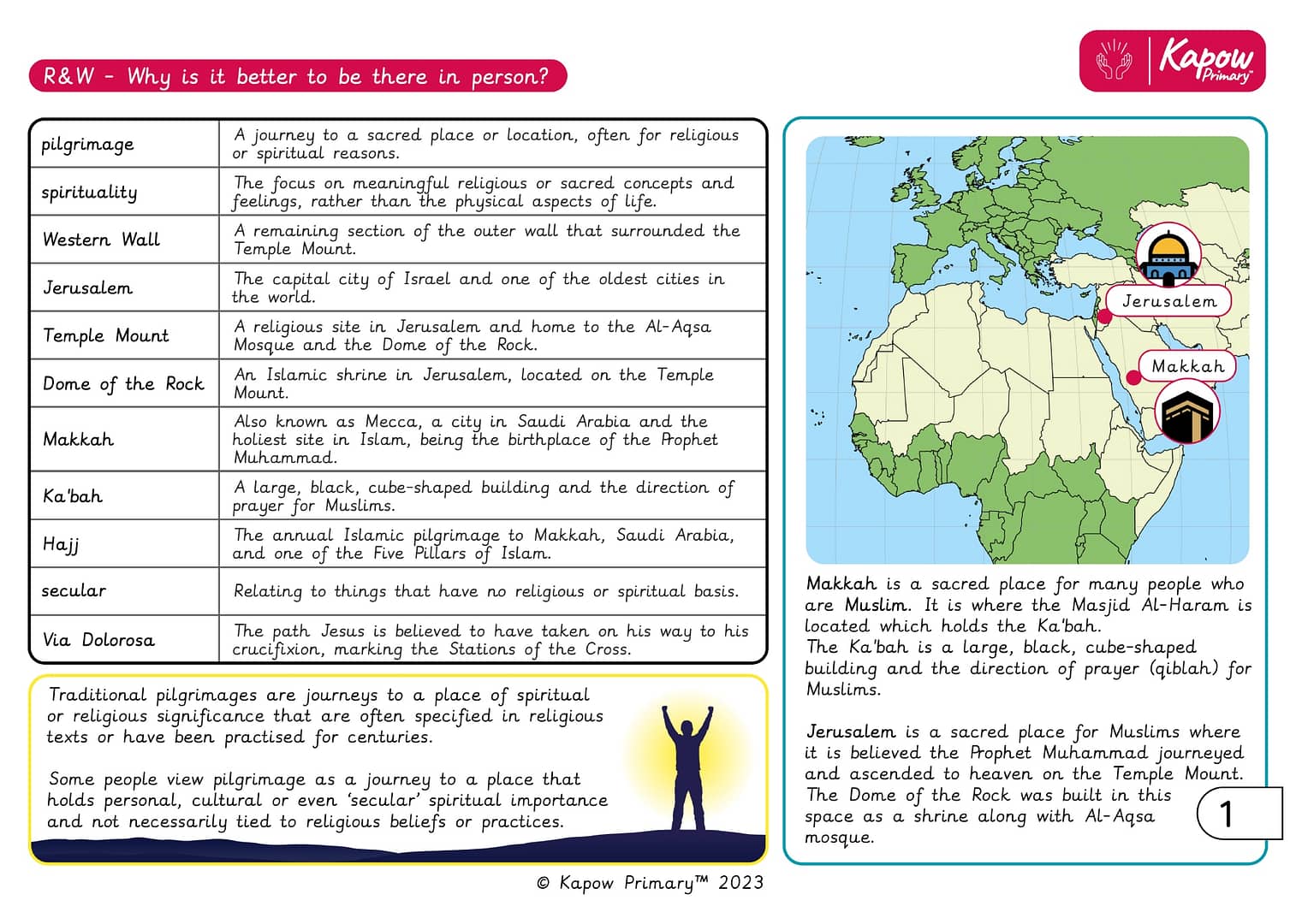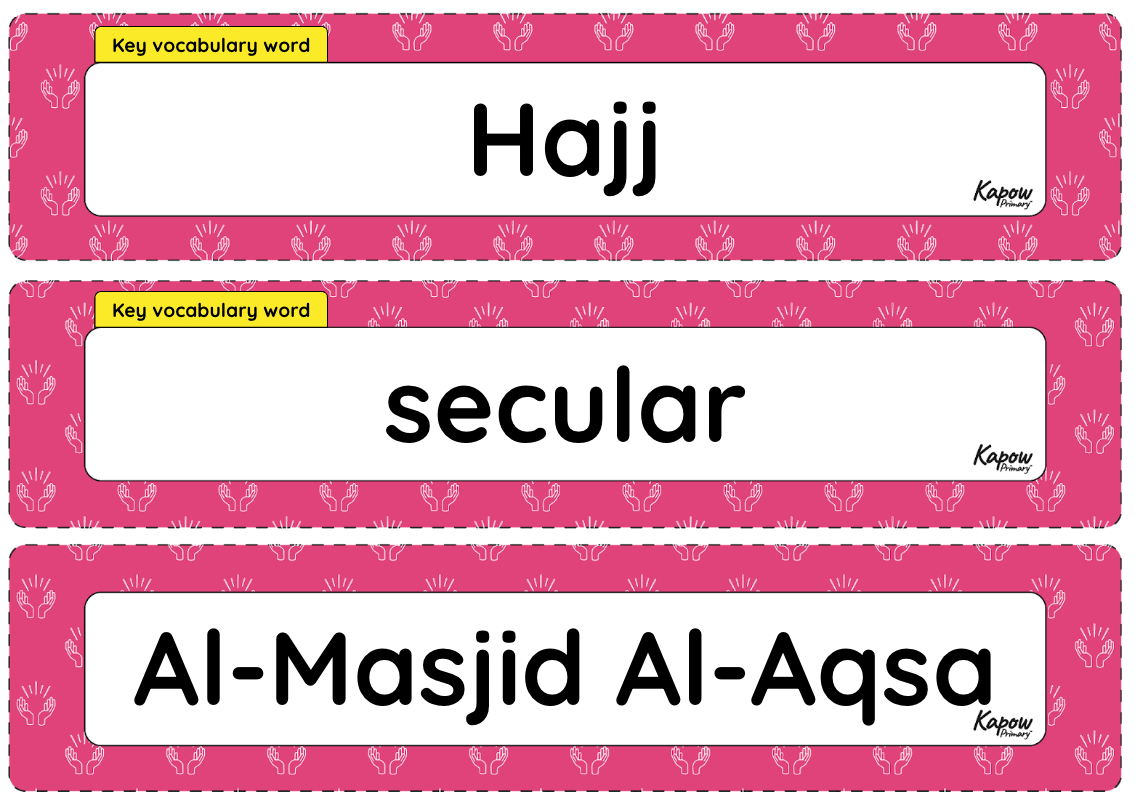Why is it better to be there in person?
Exploring significant religious and non-religious journeys and pilgrimages and why going to a particular place is so important to some people.
The Curriculum and Assessment Review final report has been released. We’re reviewing the recommendations and planning for future updates. Learn more
- Subjects >
- Religion and worldviews >
- Key stage 2 >
- Year 6 >
-
Why is it better to be there in person?
Unit outcomes
Pupils who are secure will be able to:
- Identify the common features and significance of both religious and non-religious gatherings.
- Suggest reasons people might attend such events.
- Explain the importance of place, people and practice in the context of gatherings.
- Articulate the importance of Jerusalem to Jewish people.
- Discuss why the Dome of the Rock is important to some Muslim people.
- Identify the significance of Makkah for many Muslims.
- Explain the significance of various pilgrimage sites in different religious worldviews.
- Make thoughtful connections between the pilgrimage sites and the concept of spirituality.
Due to the conflict in Israel and Palestine, extra care should be taken when teaching this unit, especially with regard to any children who may have connections with Israel, Palestine, or the broader region.
If you are aware of any particular issues that a child has, you might want to discuss the unit with the child beforehand and adapt it to accommodate them. Consider having an adult work with them for additional support. If issues arise during the lesson, it would be advisable to refer to your Senior Leadership Team.
In Lesson 1, the children produce words and phrases on sticky notes about different places. Keep these for future lessons in the unit.
For an extension of Lesson 4, if possible, invite a member of your local community who has experienced Hajj into school to give a first-hand account of their experience.
For Lesson 5, if possible, invite a member of your local community who has experienced a Humanist convention into school to give a first-hand account of their experience.
Suggested prior learning
Why does religion look different around the world? (Part 2)
Get startedLessons
Lesson 1: What can make a space significant? People, place or practice?
- To explore the factors that can shape someone’s experience of a religious or non-religious event.
Lesson 2: Why might a Jewish person want to visit Jerusalem?
- To understand the significance of places for some Jewish and non-Jewish people.
Lesson 3: Why is Jerusalem significant to some Muslim people?
- To evaluate the rules around attending significant places.
Lesson 4: How can shared challenge bring people together?
- To consider the challenges that many Muslims may face when travelling to Makkah.
Lesson 5: Are all journeys pilgrimages?
- To understand the significance of attending a non-religious event as a Humanist.
Lesson 6: Why is it better to be there in person?
- To explore the concept of pilgrimage and its relevance in the UK.
Key skills
Key knowledge
Related content
Unit resources

Knowledge organiser – R&W Y6: Why is it better to be there in person?
Aimed at pupils, a double page document that gives key facts and definitions from the 'Why is it better to…

Vocabulary display – R&W Y6: Why is it better to be there in person?
A display version of the vocabulary from the 'Why is it better to be there in person?' unit.
Cross-curricular opportunities
English: Spoken language; Writing.
RSE: Respectful relationships.
British values: Mutual respect; Tolerance of those with different faiths and beliefs.

